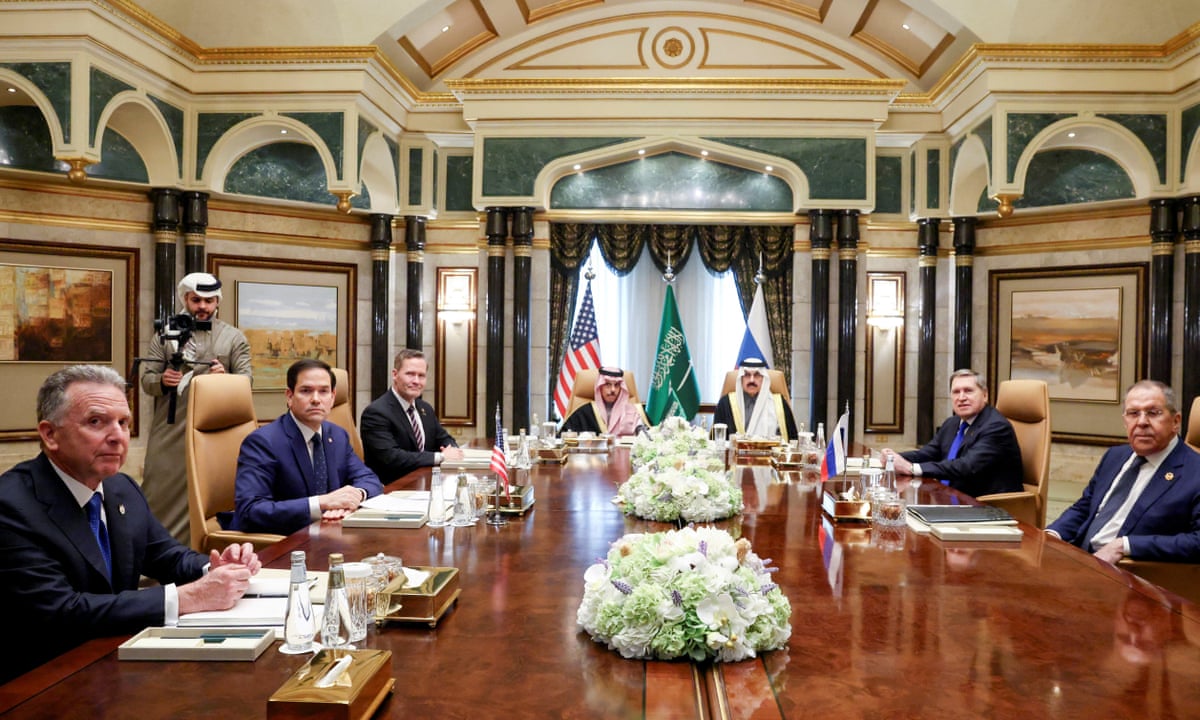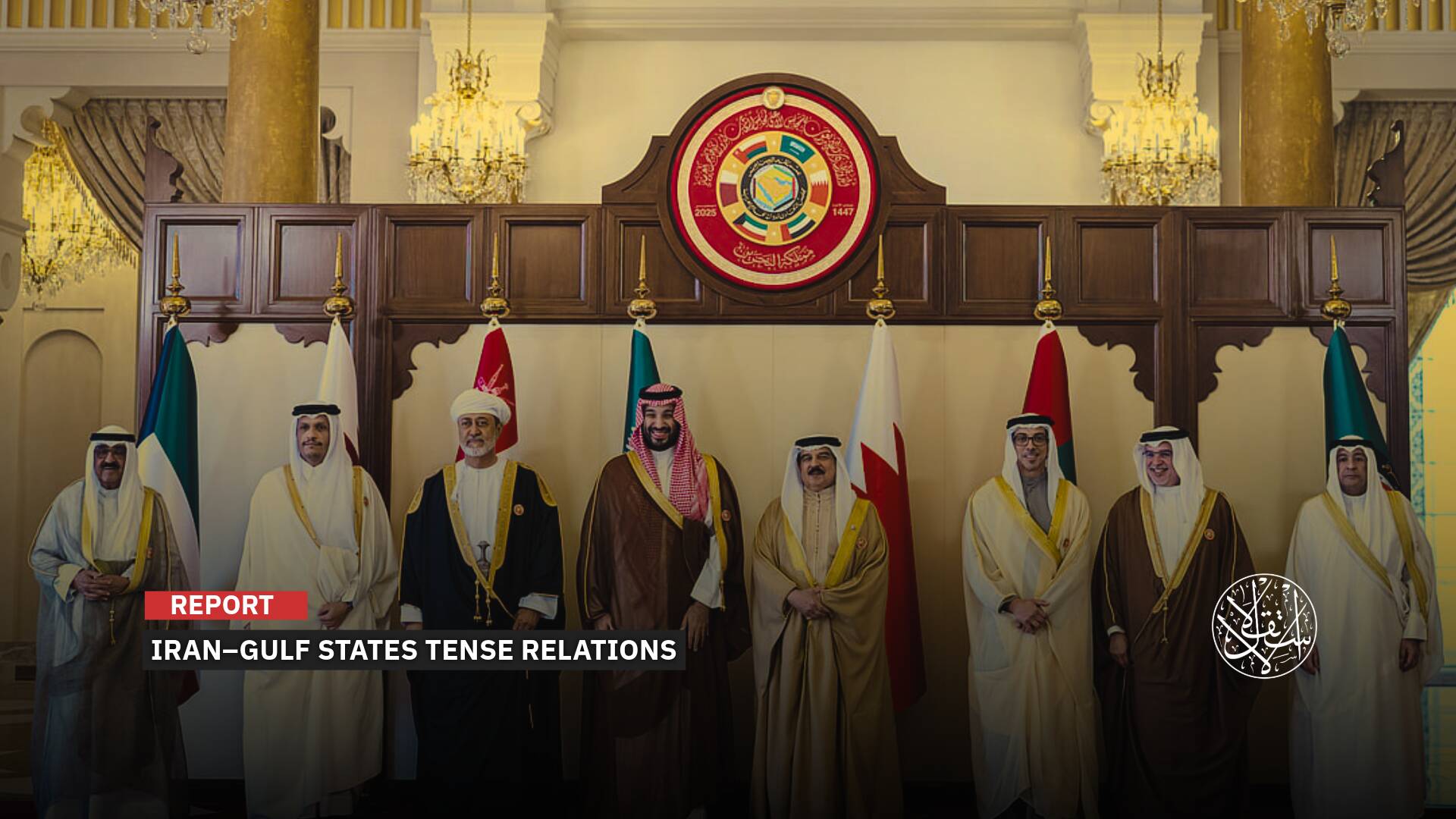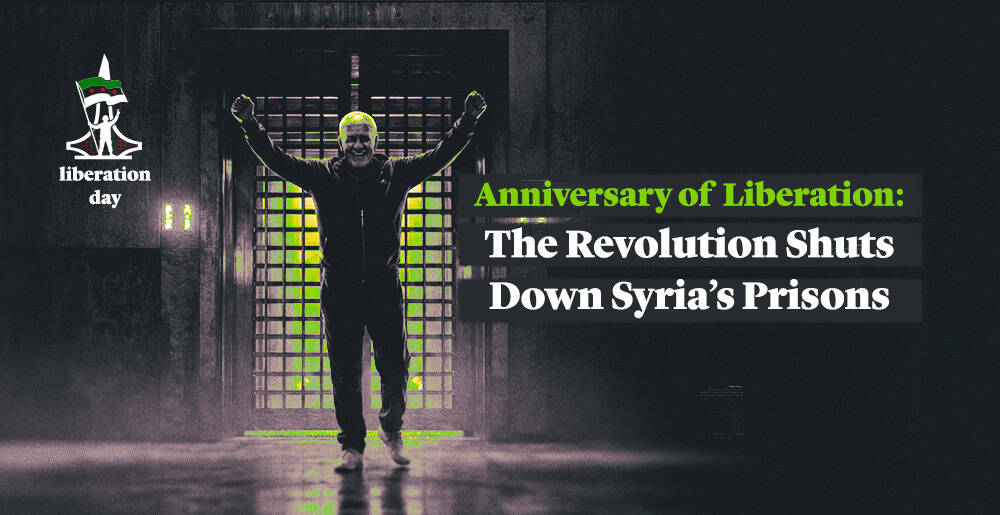Zelensky Meets Erdogan in Ankara: A Message to Trump and Putin?

Washington is trying to bolster a non-Shia power that can compete with Turkiye in the region.
Turkish President Recep Tayyip Erdogan welcomed Ukrainian President Volodymyr Zelensky with an official ceremony at the presidential complex in Ankara on February 18, 2025, amid intensified diplomatic efforts to end the Russia-Ukraine war.
The visit took on added significance given its timing. As Erdogan and Zelensky met in Ankara, senior officials from the new U.S. administration and Russia held their first high-level, face-to-face talks in Riyadh.
Prior to his stop in Turkiye, Zelensky had visited the United Arab Emirates and was scheduled to travel to Saudi Arabia. However, he canceled the visit in response to the U.S.-Russia meeting in Riyadh.

Ideal Host!
President Recep Tayyip Erdogan said Turkiye would be the “ideal host” for any talks to end the nearly three-year conflict between Russia and Ukraine.
“Turkiye will be an ideal host for the possible talks between Russia, Ukraine and America in the near future,” he stated at a joint press conference in Ankara with Ukraine’s President Volodymyr Zelensky.
“At the same time, I emphasized that we would provide any support to complete the negotiations and establish sustainable peace. This war must end,” Erdogan added.
The Turkish president stressed that Ukraine's territorial integrity and sovereignty are Turkiye's sine qua non.
The war, which has caused many “innocent deaths” and enormous destruction, “must end now,” Erdogan said.
“In order for a just peace to be possible, the countries that we know to be powerful must show their attitude in favor of peace.”
“We hosted direct negotiations between the two countries [Russia and Ukraine] in Istanbul in March 2022. As a result of our contacts with the parties, we launched the Black Sea Grain Initiative. In the last three years, we have made direct initiatives with Russia and Ukraine at all levels. In all these efforts, we have sincerely endeavored to be a reliable mediator for both sides, and we have achieved concrete results,” he added.
Zelensky, for his part, stressed that Ukraine must be included in any negotiations to end the conflict. “The Russian-American meeting in Saudi Arabia came as a surprise to us, just as it did to many others. Yes, we saw the media coverage, but I don't know who will stay, who will leave, or where anyone is going. To be honest, I don't really care. What matters to me is that our partners take time to think about us.”
Expressing gratitude for Turkiye’s hospitality and constructive diplomatic approach, Zelensky stated, “Ukraine greatly values its relations with Turkiye, the mutual understanding we share, and the support we receive in this extraordinary time of war. We are grateful for the warm welcome, hospitality and absolutely constructive approach in our negotiations.”
He further underscored Turkiye’s firm stance on Ukraine’s sovereignty, calling it “a matter of global importance.”
Meanwhile, on February 18, 2025, U.S. and Russian delegations concluded talks in Riyadh aimed at easing tensions that have persisted since the start of the war in Ukraine.
The Russian delegation included Foreign Minister Sergey Lavrov, Kremlin foreign policy adviser Yuri Ushakov, and Russian Direct Investment Fund CEO Kirill Dmitriev.
The U.S. delegation was led by Secretary of State Marco Rubio, White House National Security Advisor Mike Waltz, and Special Envoy for the Middle East Steve Witkoff.
On February 13, U.S. President Donald Trump announced that officials from the U.S., Russia, and Ukraine would meet in Saudi Arabia.
A day earlier, Trump said he had reached an agreement with Putin to initiate negotiations aimed at ending the war in Ukraine.

Time for Concessions
After strong statements from U.S. officials at the Munich Security Conference, held from February 14 to 16, 2025, rejecting any peace negotiations between Russia and Ukraine without Kyiv, the Riyadh meeting has now set the tone for the next phase.
Russian Deputy Vice President Yuri Ushakov told Perviy Kanal that the meeting lasted four and a half hours.
“The two sides have yet to reach full agreement, but the issue remains under negotiation,” Ushakov said.
One of the key outcomes was an agreement to initiate direct talks between Russian and U.S. negotiators on Ukraine.
Speaking to the pro-Kremlin Channel One Russia, Ushakov said it was a “very serious discussion of all the issues we wanted to touch upon.”
“We have agreed to take account of each other's interests and develop bilateral relations, since both Moscow and Washington are interested in this,” he added.
Russian and U.S. foreign ministers also agreed to establish high-level negotiating teams to begin discussions on resolving the conflict.
U.S. Secretary of State Marco Rubio proposed a three-phase plan to end the war, emphasizing that all sides must be willing to make concessions.
Following the talks, State Department spokesperson Tammy Bruce said the goal is to end the conflict in a way that is lasting, sustainable, and acceptable to all parties.
Bruce confirmed to Reuters that both sides had agreed to appoint high-level negotiating teams “as soon as possible” to work toward ending the war.
The State Department said the meeting was an important step in an incipient process.
“One phone call followed by one meeting is not sufficient to establish enduring peace,” Bruce added.
Russian Foreign Minister Sergey Lavrov stated that Moscow and Washington agreed to make every possible effort to align their geopolitical and economic strategies.
At a press conference following the talks, Rubio said President Donald Trump was committed to ending the war in Ukraine in a fair manner.
He also revealed that Russia and the U.S. had agreed to appoint ambassadors “as soon as possible.”

Trump, Ukraine, and Europe
Alongside President Donald Trump’s unexpected remarks on the war in Ukraine, his moves to potentially sideline Europe from the equation have triggered alarm across the continent.
European governments fear that the U.S. may strike a deal that jeopardizes the continent’s security.
In response, European leaders convened an emergency summit in Paris on February 18, 2025, to formulate a European action plan amid what they see as chaotic moves by the Trump administration.
The Elysee Palace described the summit as the start of a series of consultations among European leaders, including those not invited to Paris, adding that talks may continue in other formats involving all partners interested in peace and security in Europe.
Trump reaffirmed his commitment to ending the conflict in Ukraine but dismissed claims that Russia poses a threat to NATO, stating, “No, I don’t agree, I don’t agree with that. Not even a little bit.”
Meanwhile, British Prime Minister Keir Starmer announced that the U.K. is “ready and willing” to deploy British troops to Ukraine to implement any peace agreement reached.
Details also emerged about the deal Trump is seeking regarding Ukraine’s mineral wealth.
According to reports, Trump wants half of Ukraine’s mineral revenues, along with veto power over extraction licenses, in exchange for providing security guarantees to Kyiv should a “peace agreement” with Russia be reached.
The EU’s reaction to the move is widely seen as an effort to curb U.S. influence on the continent.

Turkiye and Saudi Arabia
When Donald Trump suggested that he might meet with Vladimir Putin in Saudi Arabia to discuss ending the war in Ukraine, many questioned why he proposed a Gulf state for such a critical summit.
Trump did not specify an exact date but hinted that the meeting could take place soon. He also suggested that Saudi Crown Prince Mohammed bin Salman could participate in the summit.
Meanwhile, international reports indicated that China and the UAE had also expressed interest in hosting a Trump-Putin summit.
Paul Salem, vice president of the Middle East Institute in Washington, sees Saudi Arabia as a logical choice for the meeting, citing its neutral stance.
He argued that Europe is not a viable option since it is directly involved in the war in Ukraine, making it an unsuitable venue.
Salem also noted that Turkiye has previously acted as a buffer zone between Russia and Ukraine during times of heightened tension.
However, according to him, the U.S. is now working to reduce Turkiye’s role and reshape the balance of power in the Muslim world.
Analyzing U.S.-Saudi relations, Salem said Washington is trying to bolster a non-Shia power that can compete with Turkiye in the region.
Sources
- 1st Russia-US talks in years conclude, with Moscow hailing 'productive meeting'
- Zelensky meets Turkiye’s Erdogan amid US shift on Ukraine
- Trump says his meeting with Putin 'could be very soon'
- Zelensky from Ankara: The US-Russian meeting in Saudi Arabia was a surprise to us [Arabic]
- Russia and US agree to work toward ending Ukraine war in a remarkable diplomatic shift
- US, Russia agree to start push towards peace in Ukraine, State Dept says
- Turkey 'ideal host' for peace talks on Russia-Ukraine war, Erdogan says
- Why did Trump choose Saudi Arabia as a place to meet his Russian counterpart? [Arabic]












